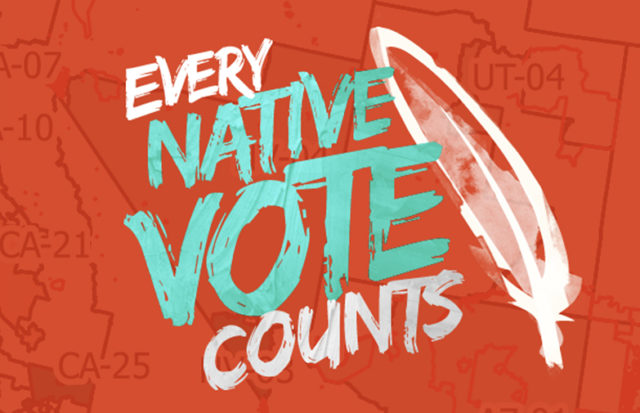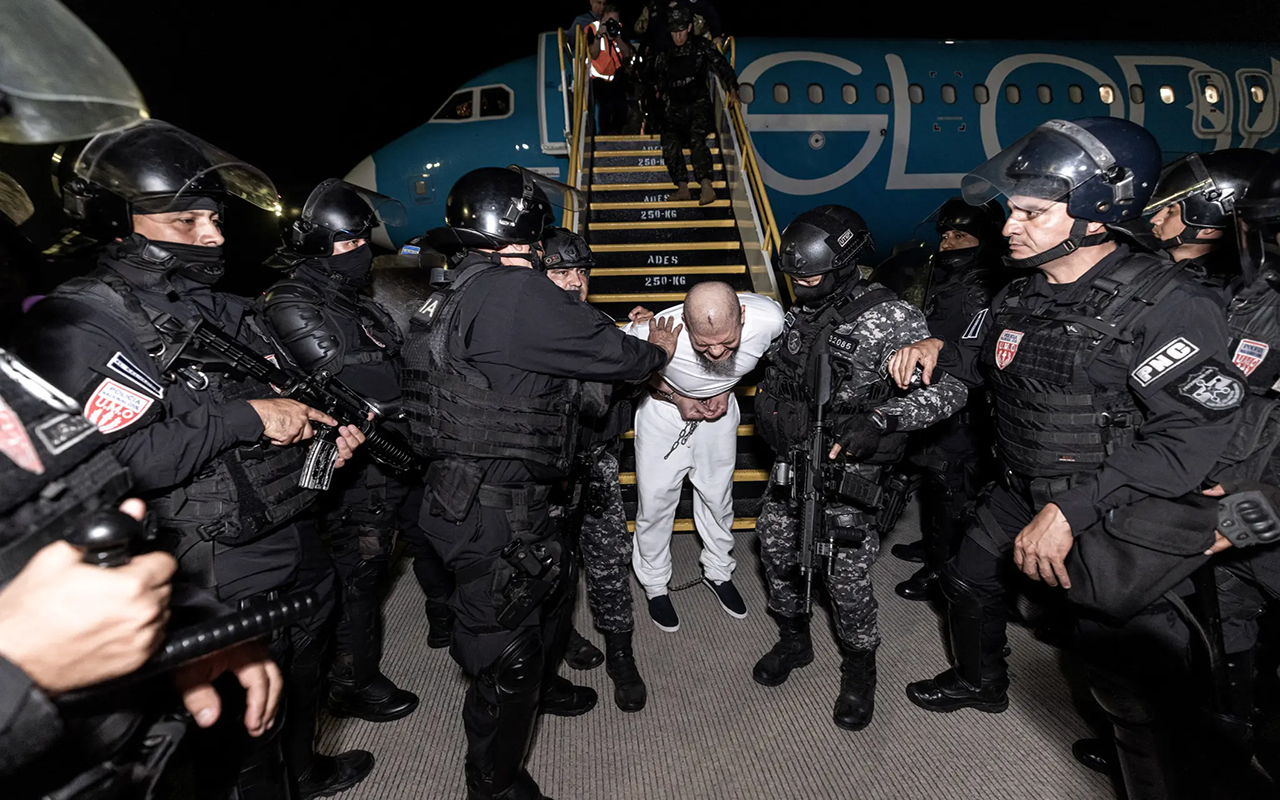
The push for the Native American vote continues well after the 2020 election
A number of voting organizations in Indian country have gained clout in recent years, looking to future elections as opportunities to flex political muscle.
Months after the 2020 presidential election came to an end, Native American organizers have kept up their efforts to get Oklahoma voters registered.
Rock the Native Vote is an initiative created with the intention to get Indigenous Oklahoma residents more politically engaged, and they have successfully registered about 700 people through voter drives and other events.
Rev. David Wilson, assistant to the bishop of the Oklahoma Indian Missionary Conference, said that the group is already looking ahead towards next year’s midterm elections.
Wilson, a citizen of the Choctaw Nation, said that it’s necessary to think long-term for the community, and start working on the 2022 midterm election turnout now.
While attending a conference in 2004, Wilson recalled an attendee asking a speaker about why political candidates don’t campaign in tribal communities, and the speaker responded frankly with “because you people don’t vote.”
Motivated by this answer, Wilson helped to organize Rock The Native Vote shortly after the conference. Since then, the group’s mission has broadened to include efforts beyond assisting Native communities.
They have partnered with groups such as Voto Latino, and pledged to register hundreds of Oklahomans — not just tribal citizens — to vote.
Rock the Native Vote and Voto Latino teamed up to celebrate National Voter Registration Day in the best way possible – with a voter registration drive.
— OKC THUNDER (@okcthunder) September 23, 2020
Full Story | https://t.co/W245a6JhfU pic.twitter.com/UZcc0xDMTM
Taylor Broadbent, a Cherokee citizen and coalition chair of Oklahoma Votes, explained that efforts like these serve to highlight the valuable contributions that Native communities and Indigenous nations provide to the state.
Oklahoma Votes in an organization situated at the University of Oklahoma, and has helped to register over 1,000 voters throughout the last two years. The group partners with local student organizations at the university to encourage the youth to become more politically involved.
Join Oklahoma Votes tomorrow, April 20, for our Ask the Expert discussion!! The event will be led by Misha Mohr on election security. See you there at 5:00 pm! pic.twitter.com/2IrHv8xxCr
— Oklahoma Votes (@OklahomaVotes) April 19, 2021
Before the pandemic, the group focused on increasing the Native vote through attending tribal events such as pow wows and ceremonial stomp dances.
Broadbent said that he feels a “heavy responsibility” to his tribe, to ensure that his fellow community members are civically engaged.
“All the policies that go into effect — all the way from the federal level to the local level — affect my people,” he said.
On Thursday, July 9, 2020, in a ruling of 5-4, the Supreme Court upheld that nearly half of Oklahoma is a Native American reservation when it comes to matters of criminal justice.
RELATED CONTENT
McGrit v. Oklahoma ruled that much of the eastern part of the state remains Indian Country.
We’ve known for months this was coming—and for decades it was true—but today Oklahoma courts finally upheld the reservation boundaries of Cherokee Nation. https://t.co/t9l4MYoTCQ
— Rebecca Nagle (@rebeccanagle) March 11, 2021
According to Wilson, the decision, in addition to discussions held on culturally-insensitive mascots, helped motivate Natives to turn out in recent elections.
As a result of this mass mobilization of Native voters, President Joe Biden was able to win Arizona during November’s election. While the organizations are nonpartisan, they both reflected on the impact that Indigenous voters can have on elections.
Kamryn Yanchik, a Seminole and Muscogee citizen who is the civic engagement fellow for Oklahoma Votes, said that political candidates tend to overlook tribes in their campaign trails as Native individuals make up a small percentage of voters across the country.
“Whenever we are reached out to, and whenever we do feel passionately about something,” said Yanchik, ”we have that power to be influential.”
In March, Oklahoma Votes held a forum to education Native college students on voting in tribal elections. Native nations are far from a monolith, and this event helped to keep Indigenous students informed about elections in district, sovereign tribes.
This virtual forum was one of the only events that the group has put together in the past year. Rock The Native Vote has also hosted virtual events, including a town hall for Oklahoma City Council candidates.
“There’s not an offseason,” Broadbent said. “The work for us doesn’t stop, and it surely doesn’t stop after presidential elections or Senate elections.”










LEAVE A COMMENT: